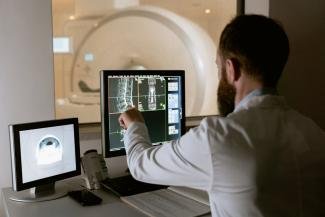Information and communication technology (ICT) stands poised as a transformative force with profound implications for human well-being. From revolutionizing healthcare delivery to reshaping education and enhancing social connectivity, ICT holds the promise of creating a future where individuals worldwide can lead healthier, more empowered lives.
healthcare
By Armando S Paraiso, 15 July, 2024
The integration of Artificial Intelligence (AI) into healthcare has sparked significant discussions about its potential to enhance efficiency while simultaneously presenting ethical challenges. The interplay between these two dimensions is critical for ensuring that AI technologies are harnessed in ways that benefit patients and the healthcare system without compromising ethical standards.
AI systems offer the promise of enhanced diagnostic accuracy, streamlined administrative processes, and more personalized patient care. For example, AI-powered tools can analyze medical images with high precision, predict patient risks through predictive analytics, and automate routine tasks, freeing up healthcare professionals to focus on more complex aspects of patient care. This efficiency can lead to better health outcomes, reduced costs, and a more effective use of resources.
However, this efficiency comes with a set of ethical concerns that must be addressed to ensure responsible AI use. The handling of sensitive patient data is a major issue, as AI systems rely on vast amounts of personal health information. Safeguarding this data against breaches and ensuring that patient privacy is maintained are paramount. Additionally, the potential for algorithmic bias—where AI systems may perpetuate or exacerbate existing disparities in healthcare—requires careful consideration. AI tools must be developed and tested to ensure they are equitable and fair across diverse patient populations.
Another significant ethical concern is the question of accountability. When AI systems are involved in making diagnostic or treatment decisions, determining who is responsible for errors or adverse outcomes becomes complex. Clear guidelines and frameworks are needed to establish accountability among AI developers, healthcare providers, and institutions. This ensures that patients have avenues for recourse and that there is clarity about who is responsible for the decisions made by AI systems.
Transparency in AI decision-making processes is also critical. Many AI systems operate as “black boxes,” with their internal workings hidden from users. This lack of transparency can hinder trust and understanding, both for healthcare professionals and patients. Ensuring that AI tools provide clear explanations of their algorithms and decision-making processes helps integrate these technologies into clinical practice while maintaining a level of trust and accountability.
Informed consent is another crucial aspect of the ethical landscape. Patients must be fully informed about how AI is used in their care, including the implications for their data and the potential benefits and risks of AI-driven decisions. Clear communication and transparency about AI’s role in healthcare are essential for maintaining patient trust and autonomy.
Lastly, the importance of collaboration between healthcare professionals and AI developers cannot be overstated. Effective collaboration ensures that AI tools are designed and implemented with a comprehensive understanding of clinical needs and ethical considerations. This partnership helps to align technological advancements with practical applications and ethical standards, ultimately leading to better patient care and more effective AI solutions.

